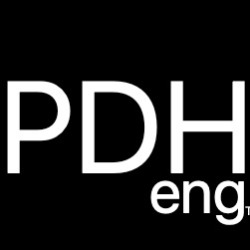Work Motivation for Performance
About the Series Organizational Behavior as Applied to an Engineer’s Career Rice University, a premier U.S. institution, has the copyright on this research-grade source information. Authored by 12 of the brightest university minds, along with 30+ reviewing university personnel, this …
About the Series Organizational Behavior as Applied to an Engineer’s Career
Rice University, a premier U.S. institution, has the copyright on this research-grade source information. Authored by 12 of the brightest university minds, along with 30+ reviewing university personnel, this is a masterpiece on the science of organizational behavior.
Organizational behavior is an ever-evolving field of management. The series is designed sequentially and in subject matter to comprise an introductory course in Organizational Behavior. What variables are involved that affect how, when, where, and why managers perform their jobs. Managers at varying organizational levels that have effectively and efficiently met and exceeded objectives – what theories do they hold? What techniques do they use? Management is a broad business area of study, and the series addresses various topics such as individual behavior at work, group behavior at work, communication among co-workers, managing conflict and negotiation in the workplace.
PDH Hours
PDH: 2.5 hr
Course Objectives
After taking this course, you should know how to:
- Define motivation, and distinguish direction and intensity of motivation.
- Describe a content theory of motivation, and compare and contrast the main content theories of motivation: manifest needs theory, learned needs theory, Maslow’s hierarchy of needs, Alderfer’s ERG theory, Herzberg’s motivator-hygiene theory, and self-determination theory.
- Describe the process theories of motivation, and compare and contrast the main process theories of motivation: operant conditioning theory, equity theory, goal theory, and expectancy theory.
- Describe the modern advancements in the study of human motivation
Curriculum
- 2 Sections
- 5 Lessons
- 52 Weeks
- Attribution1
- 7.0 Course Body9
- 2.27.1 Motivation: Direction and Intensity17 Minutes
- 2.3Concept Check 7.110 Minutes1 Question
- 2.47.2 Content Theories of Motivation48 Minutes
- 2.5Concept Check 7.210 Minutes1 Question
- 2.67.3 Process Theories of Motivation68 Minutes
- 2.7Concept Check 7.310 Minutes1 Question
- 2.87.4 Recent Research on Motivation Theories10 Minutes
- 2.9Concept Check 7.410 Minutes1 Question
- 2.10Course Test20 Minutes5 Questions







